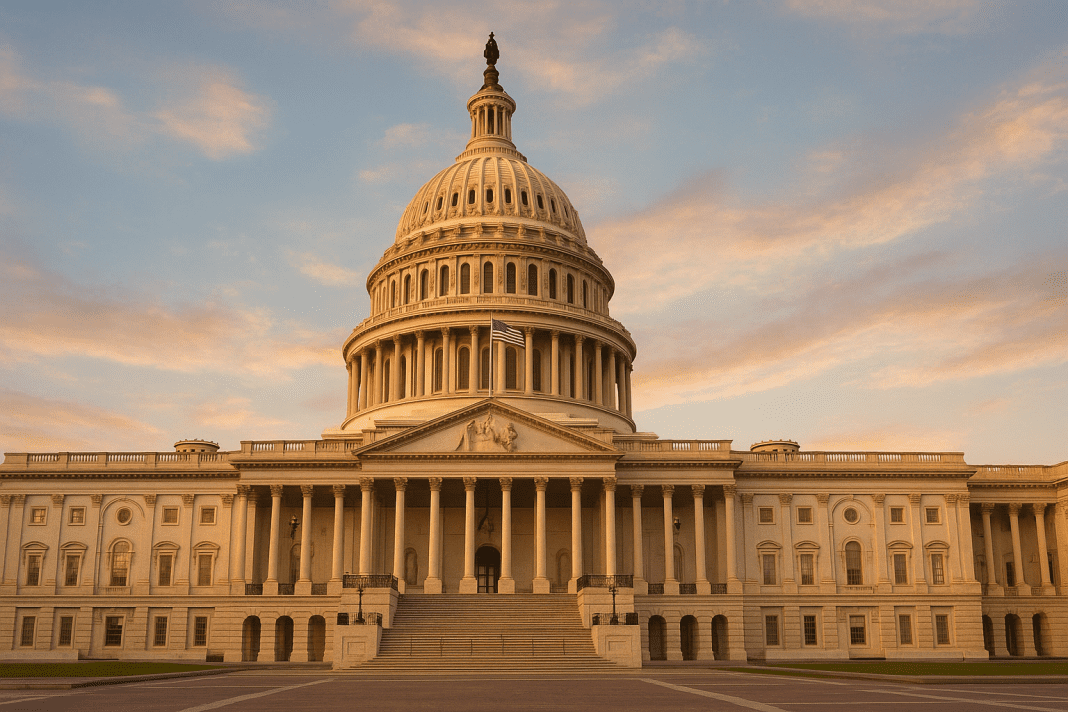A major wave of pressure is growing in Congress as leaders from both major parties come together to support a plan that could stop members of Congress and their families from trading individual stocks. At least 25 bills have been introduced this year, showing a level of unity that is rare in Congress today.
Rising Momentum in Congress for Stronger Rules
The push is based on a simple concern. Members of Congress receive important information long before the public does. They attend closed-door meetings, hearings, briefings, and discussions that give them insight into national issues. This has made many people believe that members of Congress have an unfair advantage when they buy or sell stocks.
A law called the STOCK Act was passed in 2012 to prevent insider trading by government officials. It says lawmakers must report stock trades worth more than $1,000 within 45 days. But during a recent hearing, experts said this law is not strong enough. They pointed out that Congress has never seen a member prosecuted under this law. Many lawmakers even file their stock reports late and often face no serious penalty.
Trump’s Bold Move: USAID Shutdown Sparks Controversy and Political Clash
Reports and investigations over the years have added to the concern. A 2023 national survey showed that about 86% of Americans want a ban on stock trading by members of Congress. A popular stock-tracking platform found that many lawmakers who traded stocks in 2023 earned more than the S&P 500. Another investigation found thousands of trades where actions of members of Congress overlapped with their official duties, suggesting possible conflicts of interest.
Experts told the committee that the STOCK Act does not stop members of Congress from trading stocks linked to the issues they handle daily. It only requires them to disclose trades after they happen. This has led to frustration from citizens who feel Congress should be more accountable.
Congress Faces Public Pressure as Unified Bill Emerges
A group of lawmakers from both sides held a press event to support the new combined proposal called the Restore Trust in Congress Act. This bill brings together ideas from many different lawmakers into one strong plan. It would ban members of Congress, their spouses, and their dependent children from owning or trading individual stocks, commodities, or futures. Diversified mutual funds would still be allowed because they are considered safer and less likely to cause conflicts.
The proposal gives members of Congress and their families 180 days to sell any assets that fall under the ban. Newly elected officials would get 90 days. Supporters said they spent months shaping the bill so Congress could move forward with one clear plan instead of many separate proposals.
Trump backs bipartisan bill ordering public release of DOJ’s Epstein documents
But some lawmakers raised practical concerns. They asked how the rules would apply to things like family-owned businesses or local investments. These concerns show the difficulty of creating a law that protects fairness while also respecting personal situations.
Still, many supporters stressed that allowing stock trading by elected officials weakens public trust. They said citizens expect lawmakers to focus on serving the country, not growing their personal portfolios. Some members openly stated that people in these roles automatically receive inside information because of the nature of their work. They argued that if the institution accepts this reality, then it must also act on it.
With more than 80 lawmakers already supporting the bill, the pressure on Congress to take action is stronger than ever.
Committee Debate and Questions on Next Steps
During the committee hearing, members of Congress discussed how a stock trading ban would be enforced. The current STOCK Act leaves enforcement to the executive branch. Some experts said this creates uneven results because political pressure could influence decisions. Supporters of reform argued that Congress needs clearer, stricter enforcement to make sure violations are not ignored.
A spokesperson said the House committee in charge will decide when a bill moves forward. Earlier, some leaders described the issue as “difficult,” partly because salaries for lawmakers have not increased in many years. A few officials worry that a stock trading ban might discourage qualified people from running for office.
Trump warns of possible Mexico strikes as US reviews options to curb cartel violence
Despite these concerns, senior figures acknowledged that past actions by certain elected officials have damaged public trust. They noted that even a handful of questionable decisions can cast doubt on the entire institution. Some long-serving members also said they believe now is the right time to address the problem, even if doing so requires tough choices.
Across Washington, the debate continues as experts, advocacy groups, and millions of Americans call for stronger rules on stock trading. With bipartisan support and rising public pressure, the future of these financial practices has become one of the most closely watched issues in national politics.

